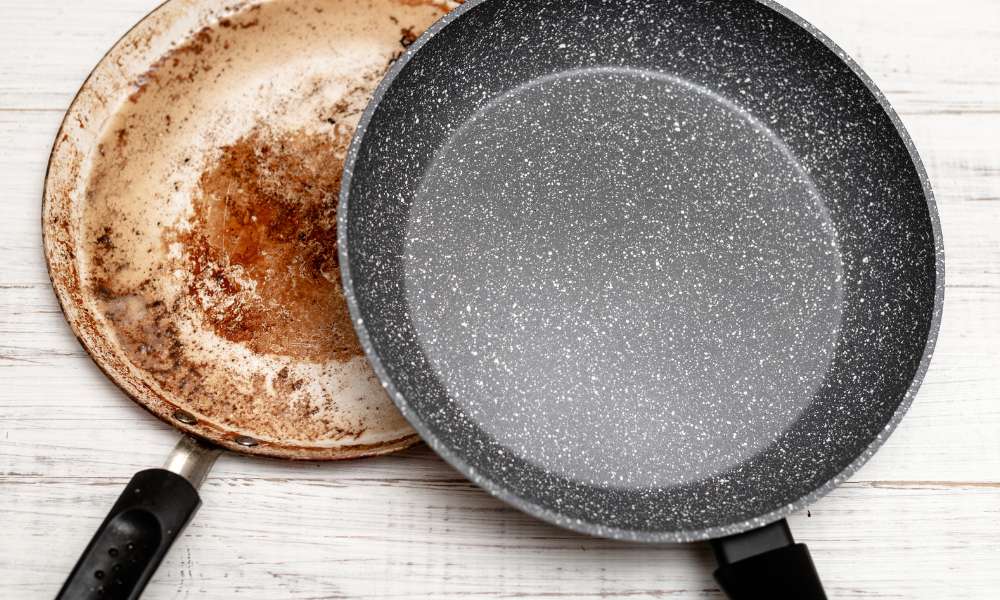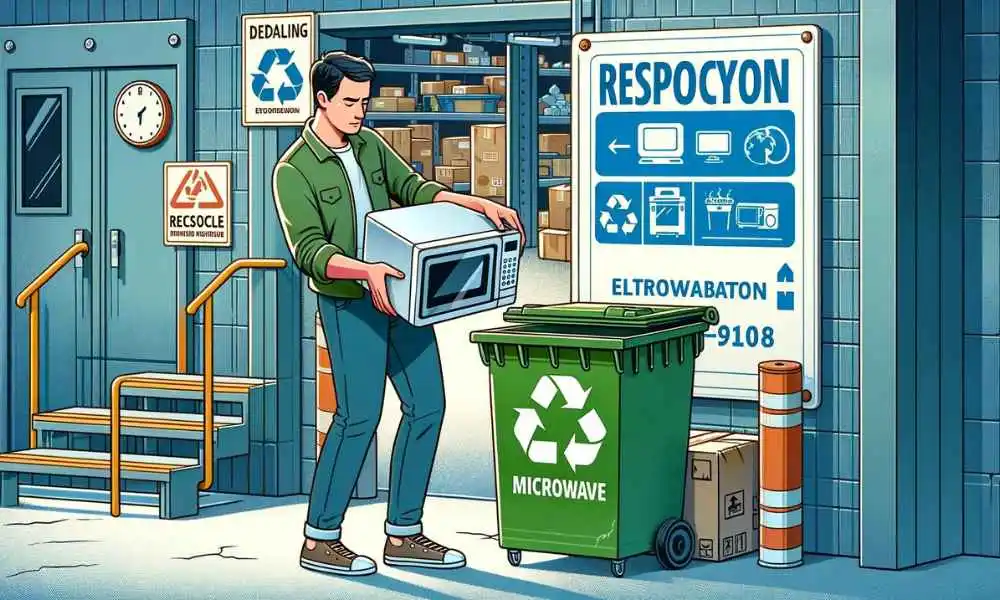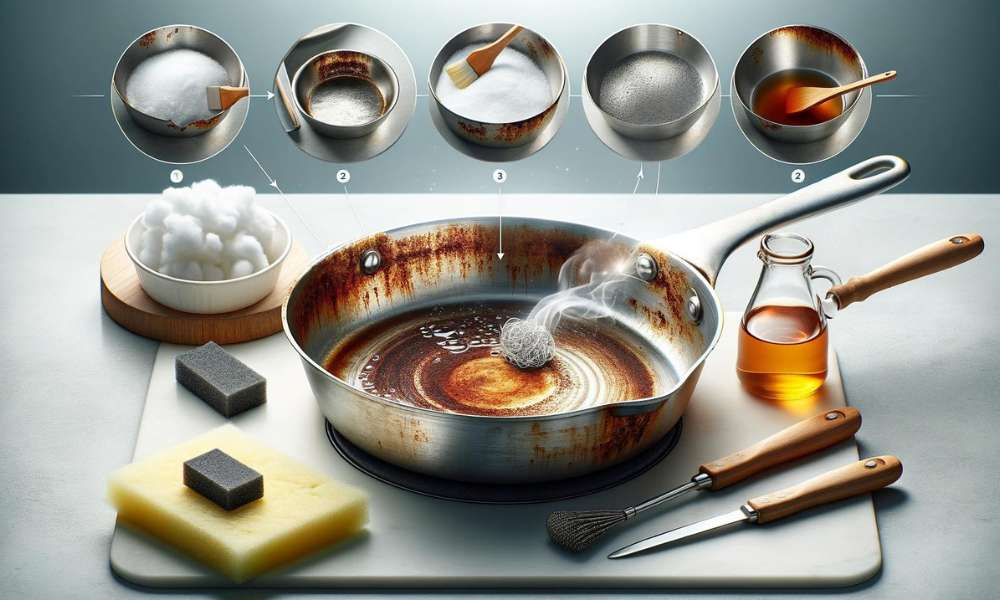Have you ever taken out your baking pans? Have you noticed that rust has destroyed the front chamber of your pan. This is a big problem in the kitchen. Rust occurs when metal meets moisture and oxygen, which is what your baking pans often encounter. But don’t worry, we are with you to Remove Rust From Baking Pans it and restore your pans to their former glory. We will explore simple and effective ways to remove rust from your baking pan. So grab your baking pans and let’s start de-rusting them.
1. Understanding Rust
Removing rust from pans may seem like a daunting task, but with a little know-how, it’s completely manageable. It is a form of iron oxide that occurs when iron collides with oxygen and moisture. When it comes to baking pans, this can happen for a number of reasons, with humidity being the main factor. Wet pans stuck together or stored in damp conditions promote rusting. Furthermore, neglecting routine maintenance, such as not drying promptly and storing pans properly after use, can accelerate rust formation. Understanding these factors is the first step to ensuring your pans are rust-free and in good condition for your next cooking adventure.
2. All The Materials and Tools You Need To Remove Rust From Baking Pans:
- Baking Soda
- White Vinegar
- Hot water
- Lemon Juice
- Salt
- Potatoes
- Dish Soap
- Steel Wool or a Scrubbing Pad
- Soft Cloth or Sponge
- Rubber Gloves
3. The Methods By Which You Remove Rust From Baking Pans are Discussed Below:
Method I: Baking Soda and Vinegar
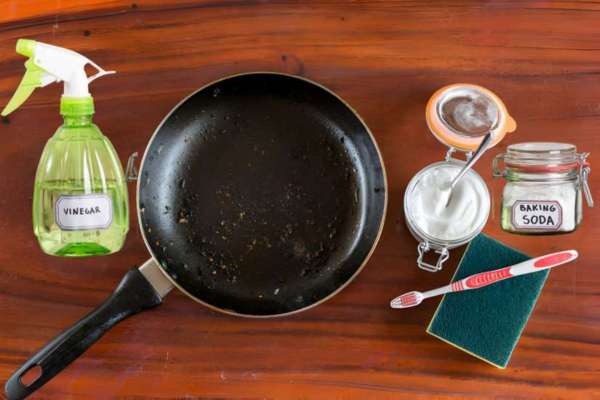
One of the most effective and environmentally friendly methods of Remove rust from pans is baking soda and vinegar. You need to know before using it how to deal with rust. First, sprinkle a generous amount of baking soda on the rusted area of your pan. Then pour the white vinegar over the baking soda until it starts to fizz and bubble. This is a reaction that chemically fights rust and restores the pan to its original shape. A combination of baking soda and vinegar creates a powerful mixture that breaks down iron oxide.
This reaction not only helps loosen rust but also makes scrubbing easier. After letting this mixture sit on the pan for about an hour, take a scrubbing pad or brush and gently scrub the rusted areas. After scrubbing, rinse well with water and ensure it dries completely to prevent new rust from forming. Using non-toxic ingredients, this method is not only effective but also safe for you and your kitchen.
Method II: Lemon and Salt
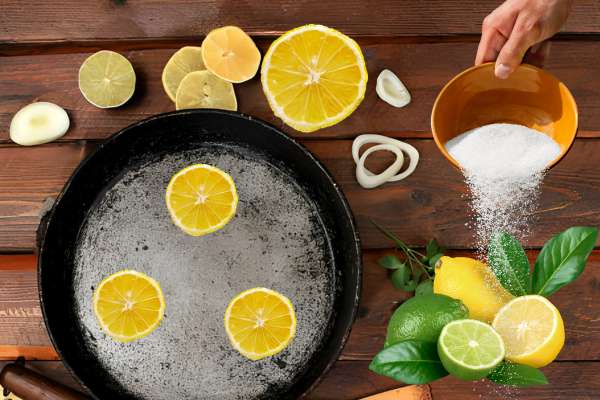
Another natural and effective way to remove rust from your pan is to use lemon and salt. Which you will get within your reach. To prepare this mixture, first sprinkle salt well on the rusted areas of the pan. Then cut a lemon in half and squeeze the lemon juice over the salt covered area. Salt acts as a corrosive and citric acid-rich lemon juice helps break down rust. After applying lemon juice, you can use half a lemon as a scrub. The citric acid in the lemon juice reacts with the rust (iron oxide) to dissolve it and lift it from the metal surface.
Let this mixture sit in the pan for several hours or overnight for best results. Then scrub the area again before rinsing the pan thoroughly with water. Dry the pan completely to prevent re-formation. Not only is this method simple and affordable, it’s a natural ingredient that’s safe for both you and the environment.
Method III: Potato and Dish Soap
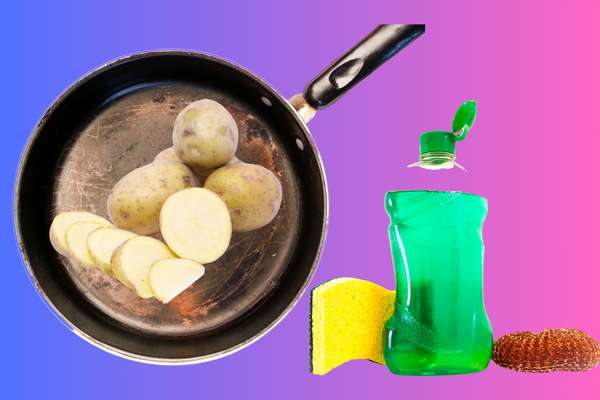
Believe it or not, a potato and some dish soap can do wonders to remove rust from your baking pan. This method is as attractive as it is effective. One combines the natural chemical properties of a potato with the cleaning power of dish soap. To do this, first cut a fresh potato in half. Then apply a generous amount of dish soap to the cut portion of the potato. Dish soap acts as a lubricant and cleaner and aids in the removal process. Next, rub the soapy potato on the rusted areas of your baking pan. The reason this method works so well is because of the oxalic acid naturally present in potatoes. Oxalic acid is a strong chelating agent that reacts with iron oxide. It breaks down and makes scrubbing easier.
If you rub the potatoes on the rust, you can start the rust from the surface of the pan. For stubborn stains, you may want to sprinkle some extra salt on the surface of the pan before scrubbing with the potatoes. You once scrubbed the pan thoroughly, rinse it with water and dry it completely to avoid new rusty formation. This method not only provides an effective way to deal with rust but also uses readily available materials. It can be a safe choice for you and your kitchen.
Method IV: Commercial Rust Removers

When natural methods don’t quite cut it, turning to commercial rust removers can be a powerful option for rejuvenating your baking pans. Choosing the right product is crucial, especially for items used in food preparation. Look for a rusty remover that specifically says it’s safe for use on kitchenware or is food-grade to ensure it won’t leave behind harmful residue. Read and follow the manufacturer’s instructions carefully before doing this. Let it sit for a while before gently scrubbing it off with a sponge or brush. Always wear protective gloves and eye protection. Rinse it thoroughly with water to remove all traces of chemical remover and dry it completely to prevent new rusty from forming. Using commercial rust removers can be very effective, but choosing the right product is important to ensure the safety and longevity of your kitchenware.
4. Rust From Baking Pans Preventative Measures
Preventing rust on your baking pan is much easier than dealing with it. A few simple measures can keep your kitchen in pristine condition. First and foremost make sure your baking pans are completely dry before storing. Moisture is the enemy here as it facilitates the oxidation process that results in rust. After washing your pans dry them well with a towel or leave them to dry in an area with good air circulation. Second, consider how you will store your pans. Avoid stacking one directly on top of another, as trapped moisture can accelerate rusty formation. Store vertically if space is at a premium or ensure there is enough space around each pan for air circulation.
Additionally applying a thin coating of oil to your pan can create a protective barrier against moisture. It is especially effective for cast iron pans but can be useful for all types. Finally, do regular maintenance. Periodically check your pans for signs of rusting and deal with it immediately before it becomes a major problem. You can extend the life of your baking pan by following these preventative measures.
5. When To Replace Your Baking Pans
Knowing when to replace your baking pans is crucial to ensuring optimal results in your baking endeavors and maintaining kitchen safety. A pan may be beyond repair and may need replacing if it shows deep rust that cannot be cleaned. Waring that affects its stability in the oven or scratches and peels that can mix unwanted ingredients into your food. Many metal recycling centers accept old baking pans, check with your local facility first, as some coatings or materials may not be recyclable. When choosing a new baking pan, look for rust-resistant options such as stainless steel or aluminum coated with a non-toxic, non-stick layer. Some modern pans are also specially designed with advanced coatings to prevent rust and wear, ensuring a longer lifespan. Investing in high-quality rust-resistant pans not only improves your baking results but also contributes to a more durable kitchen by reducing the need for frequent replacements.
Conclusion
In conclusion, dealing with rust on your baking pan doesn’t have to be a daunting task. With the right approach you can restore your pans to their former glory and significantly extend their life. You can choose natural methods like using baking soda and vinegar, lemon and salt, or even a potato and dish soap or you can choose a commercial rust remover. The key is to work quickly and use the method best suited to your needs and materials.
Remember prevention is always better than cure, so taking simple steps to prevent rusty from forming like thoroughly drying your pans before storage and applying a layer of protective oil can save you time and effort. However when a pan is beyond repair knowing when to replace it is just as important to your safety and baking quality. By following these tips and guidelines, you can keep your pans in top condition, ensuring they continue to be a valuable part of your kitchen arsenal.

